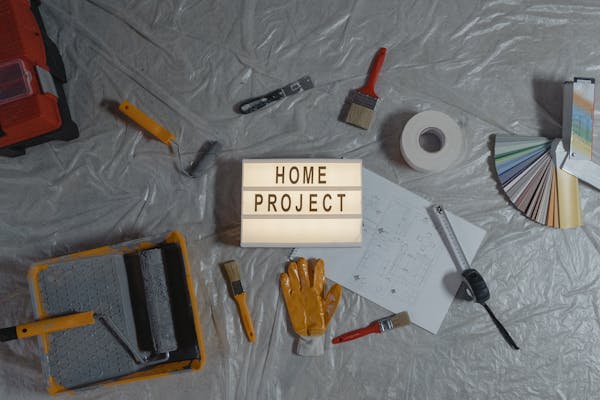HVAC system maintenance is vital to ensuring comfortable home environments, extending lifespans of equipment, and reducing energy consumption. But DIYers need to know when to say no to a do-it-yourself project and call in a professional instead.
HVAC work requires a variety of tools and skills that most homeowners lack. Mistakes made during DIY projects can result in injury and damage to the equipment. Find out more by reading this article.
Invest in the Right Tools
Having the right tools makes HVAC jobs easier and contributes to the longevity and performance of systems. From measuring instruments to refrigerant recovery tools, there are many must-have HVAC tools that can help ensure quality work and safety in the field.
A basic set of must-have HVAC tools includes a variety of wrenches, small and large screwdrivers, pliers, and a hammer. A tool kit should also include a variety of sizes of wire cutters and a tubing cutter. Additionally, a pair of industrial-strength eye goggles is an important investment to protect against dust and debris.
A good HVAC tool should also feature a manometer gauge for reading and troubleshooting airflow calculations. Commercial HVAC specialist Matt from the YouTube channel HVAC Tool Review recommends the Fluke 87-V, which provides both microamps and milliamps in one meter. Lastly, a pitot tube with duct traverse is useful for taking accurate airflow measurements. These HVAC tools will allow you to make accurate and precise measurements, resulting in better installations and repairs.
Take Time to Educate Yourself
Taking on DIY projects can provide homeowners with a sense of self-empowerment and increased knowledge of their home’s systems. However, it’s important to know which HVAC tasks you should tackle and which require a professional. Major repairs, yearly tune-ups, and system installations should always be left to licensed professionals.
Without the right equipment or experience, HVAC installation projects can be dangerous. For example, improper sizing or placement of an HVAC system can lead to inefficiencies and higher energy bills, while mistakes handling refrigerants or electrical components can pose serious safety risks.

In addition, most HVAC manufacturer warranties stipulate that only a licensed technician can perform maintenance on the system. As such, trying to save money on professional services by doing it yourself could actually cost you more in the long run.
Regularly Check Your Air Filter
The air filter is one of the most important elements to keeping your system running efficiently. Dirty filters restrict airflow, forcing the system to work harder and consuming more energy. This can result in high energy bills and cause premature wear and tear on critical components like the blower motor.
Regularly checking your air filter is an easy DIY job. Locate your filter (it’s usually located where the return is on the wall or ceiling with a grille covering it) and pull it out. Look at the old filter; if it’s dirty and clogged, it’s time for a new one! Take a photo of the filter to record the size, then find and purchase replacements. It’s a good idea to get several, so you can rotate them throughout the year.
Be sure to discard the old filter properly in an outdoor trash container. Throwing it away indoors may lead to dust and debris leaking into your home’s ductwork and causing additional problems.
Schedule Regular Maintenance
HVAC professionals offer a wide range of services, from system inspections to repairs and replacements. They can help ensure that your home’s air quality is optimal, and they can identify potential problems before they escalate, saving you money in the long run.
Pro: Professionals can perform a thorough, accurate inspection of your system and ensure that any issues are resolved quickly and efficiently. They can also provide warranty coverage and ensure compliance with regulations.
Con: Professionals can cost more upfront, but they can save you money in the long run by preventing unnecessary damage and minimizing downtime. They can also provide you with a range of other benefits, including peace of mind and increased energy efficiency.
DIY HVAC may be possible for some simple tasks, but it’s important to recognize when it’s time to call in the professionals. Attempting to repair or replace an HVAC system without proper training can cause significant damage that will cost you more in the long run.